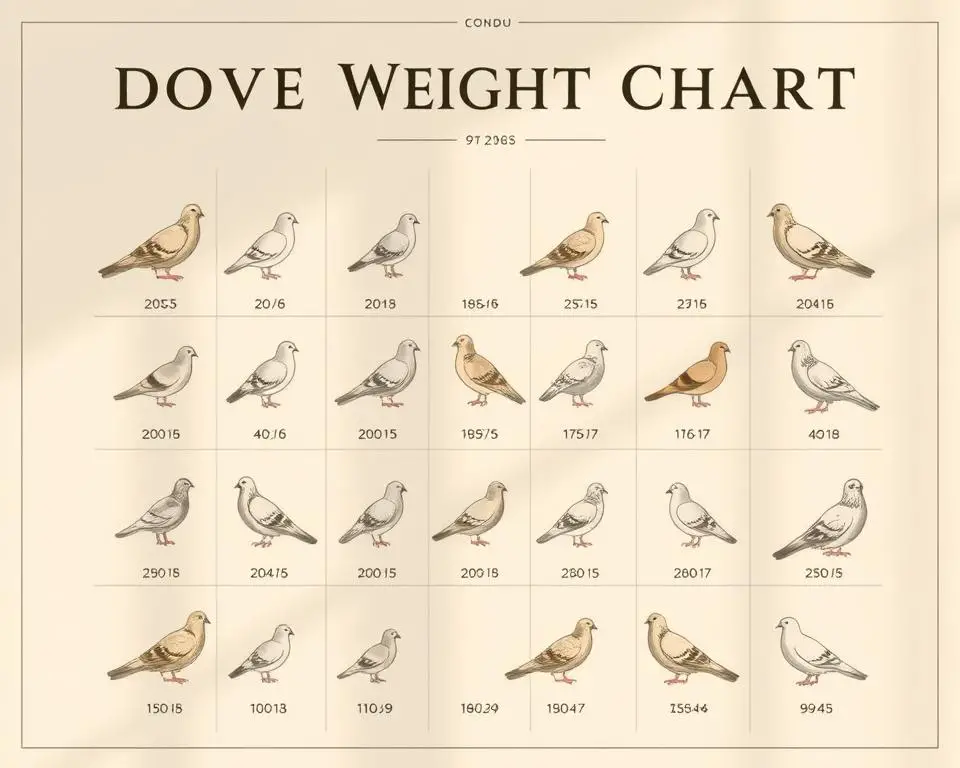As a bird enthusiast, I often find myself observing the behavior of doves. These small, gentle birds are known for their monogamous relationships and their soft, mournful calls. However, I have also noticed that doves can be quite skittish and easily frightened.
This led me to wonder, what birds are doves afraid of?
Doves are common in North America and found in bird feeders and suburban areas. They are preyed upon by predators such as hawks, owls, and falcons. During the breeding season, doves become more cautious in searching for nesting sites and protecting their young.
But birds are not the only thing that can scare away doves. Bright colors, shiny objects, and even bird droppings can also cause them to take flight. So, what can be done to keep these peaceful birds from feeling threatened?
Why are doves afraid of certain birds?
As a bird watcher, I have noticed that doves are often afraid of certain birds. This is because doves are prey animals, and they have evolved to be cautious of potential predators. Certain birds, such as hawks and falcons, are known to prey on doves, so it makes sense that doves would be afraid of them.
Birds that doves are afraid of
While doves are generally peaceful birds, they can become skittish and fly away when they feel threatened. Here are some of the birds that doves are afraid of:
- Hawks. These birds of prey are known for their sharp talons and powerful beaks. They are a natural predator of doves and can easily catch them in flight.
- Falcons. Like hawks, falcons are also birds of prey that hunt doves. They are fast and agile, making it difficult for doves to escape.
- Cats. Domestic cats are also a threat to doves. They are skilled hunters and can easily catch doves that are feeding on the ground.
- Pigeons. While doves and pigeons are both members of the Columbidae family, they are not always friendly with each other. Pigeons are larger and more aggressive than doves, which can intimidate doves.
- Blue Jays. These birds are known for their loud calls and aggressive behavior. They can scare doves away from feeders and nesting areas.
- Crows. Crows are intelligent birds that can be aggressive towards other birds. They may steal food from doves or chase them away from feeding areas.
So, doves are afraid of certain birds because they are natural predators or competitors for resources. Their small size, as well as the absence of natural defenses such as claws, makes them much more vulnerable to predators such as falcons.
How do you protect doves from predators?
Doves are vulnerable to predators and can easily become prey if they are not protected. Here are some tips on how to protect doves from predators:
Identifying dove predators
Before we can protect doves from predators, we need to know what predators we are dealing with. Some common predators of doves include:
- Domestic cats and dogs
- Birds of prey, such as hawks and owls
- Snakes
- Raccoons
- Foxes
It is important to be aware of the predators in your area so you can take the necessary precautions to keep your doves safe.
How to keep doves safe from predators
As a bird lover, I know how important it is to protect doves from predators. Here are a few tips on how to keep your doves safe:
- Secure your dove’s habitat. Make sure your dove’s cage or aviary is secure and predator-proof. Use strong wire mesh to cover the top and sides of the cage. If you have a free-flying dove, make sure your yard is secure, and there are no gaps in fences or walls that predators can get through.
- Keep your yard tidy. Predators are attracted to areas where they can hide. Keep your yard tidy by trimming back bushes and shrubs and removing any debris or clutter.
- Use scare tactics. Predators are less likely to attack if they think they are being watched. Use scare tactics such as hanging reflective objects or using motion-activated sprinklers to deter predators.
- Keep pets indoors. If you have cats or dogs, keep them indoors or supervise them when they are outside. Cats are natural predators and can easily kill doves.
- Use natural deterrents. Some natural deterrents to predators include planting thorny bushes or using predator urine (available at many garden centers).
Dove behavior
Dove behavior is often misunderstood by people, but it’s important to understand their behaviors in order to protect them from predators. Doves are social birds, and they typically form monogamous pairs and mate for life.
Dove cooing and calls
I have observed that doves are very vocal birds, and they communicate with each other through various cooing and calls. Doves use their cooing sounds to attract mates, establish territories, and communicate with their young ones.
They also make a variety of calls to warn other doves of danger, to signal food sources, or to communicate with their flock.
Dove flight and landing
In my experience, doves are graceful flyers and often fly in flocks. They use their wings to take off and land on branches or the ground. Doves have a unique flying pattern where they flap their wings rapidly and then glide. They also use their tail feathers to help them steer and balance in the air.
Dove roosting habits
Doves are social birds, and they often roost in large groups. They prefer roosting in trees, bushes, or man-made structures like buildings or power lines. In my observation, doves tend to roost in the same location every night, and they return to the same spot after foraging during the day.
Doves are vocal birds communicating through cooing and calls, graceful flyers with a unique flying pattern, and social birds roost in large groups.
Summary
Before we move on to the conclusion, we’ve summarized this article into a short list of key points for you to remember:
- Doves are prey animals and have evolved to be cautious of potential predators.
- Hawks, falcons, cats, pigeons, blue jays, and crows are some of the birds that doves are afraid of.
- To protect doves from predators, identify the predators in your area, secure your dove’s habitat, keep your yard tidy, use scare tactics, keep pets indoors, and use natural deterrents.
- Doves are social birds that communicate through cooing and calls, are graceful flyers with a unique flying pattern, and roost in large groups.
Conclusion
Doves are prey animals that have evolved to be cautious of potential predators, including birds of prey such as hawks and falcons, as well as domestic cats, pigeons, blue jays, and crows.
I hope that this short article provided you with some helpful information on how to keep your doves safe and secure from potential predators. Thanks for reading, and have a great rest of the day.
Want to learn more about doves?
Ready to boost your knowledge to the next level? If so, check out the articles below:
- Are Doves Color Blind? (Explained)
- Do Doves and Pigeons Make Good Pets?
- Are Doves Ground Birds? Everything You Need to Know!





